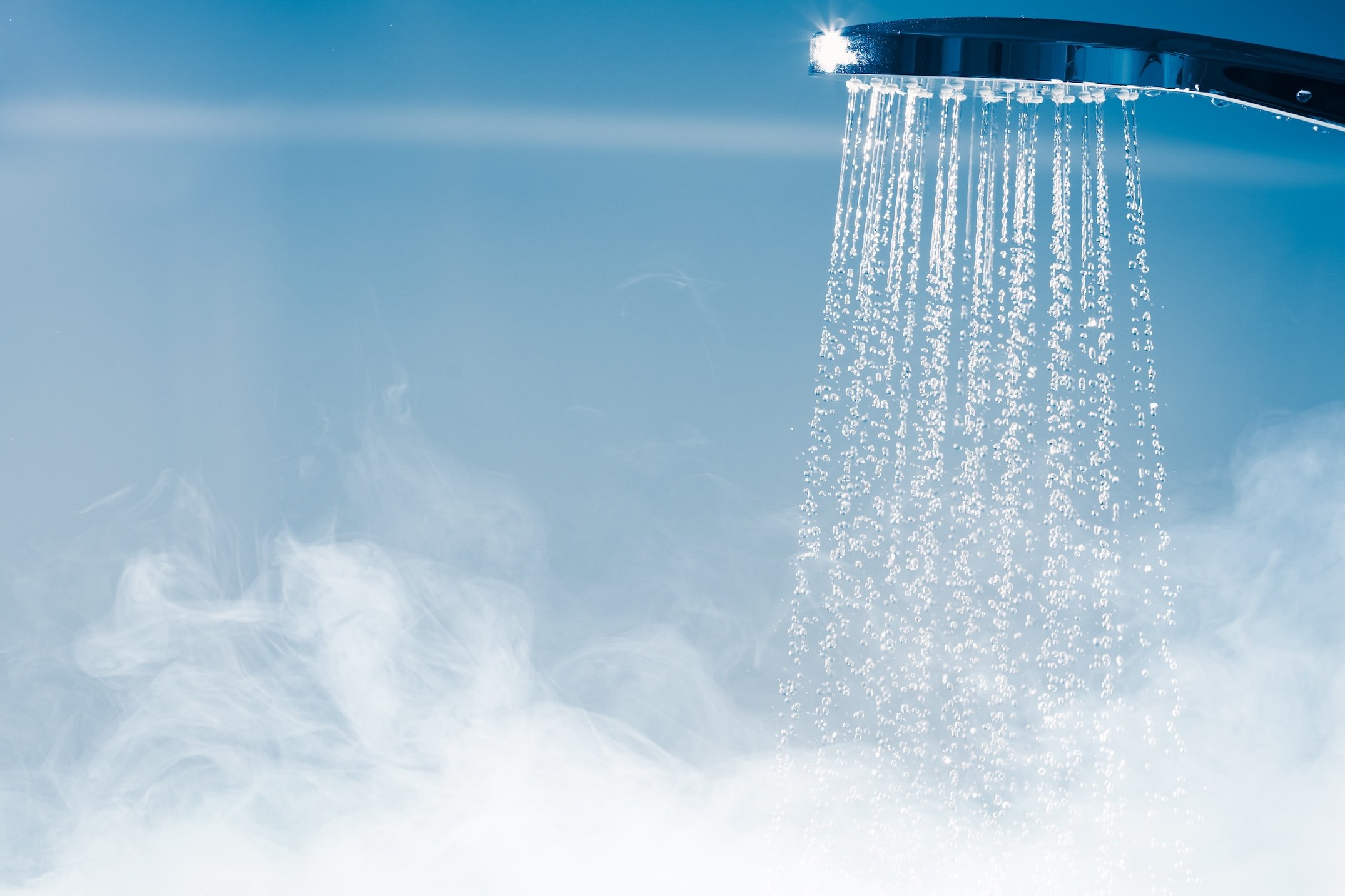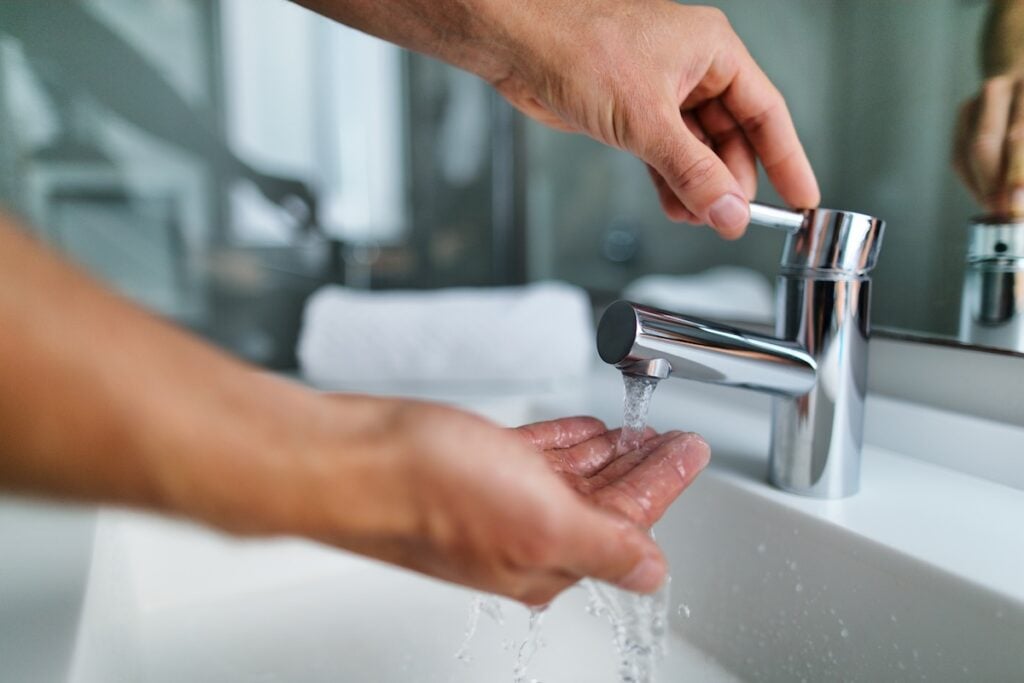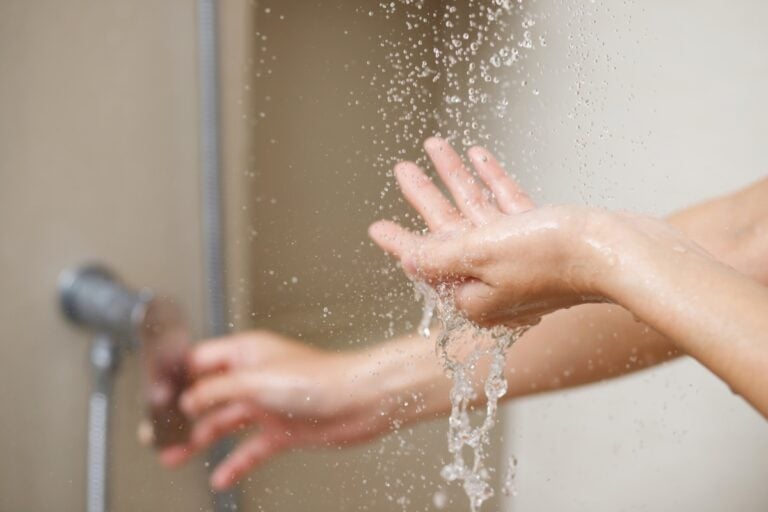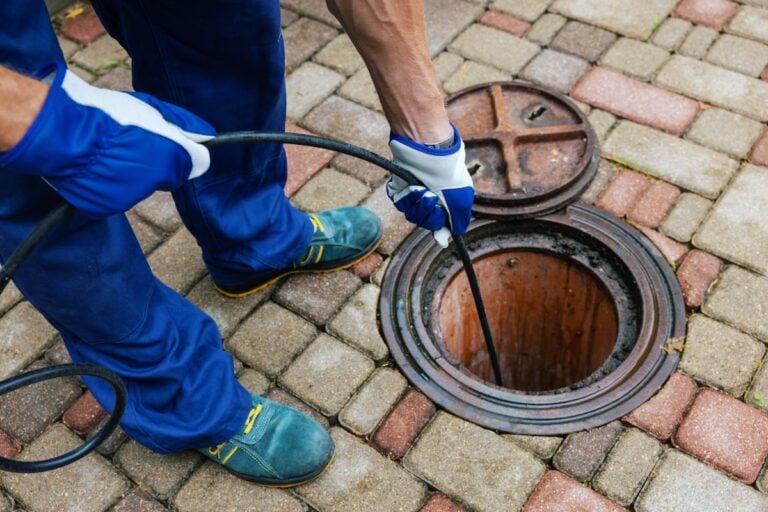
Water quality affects nearly every aspect of your home, from the way your appliances function to the quality of your drinking water. One factor that plays a significant role in water quality is the water hardness scale. But what does this scale mean, and how does it impact your home?
Here’s what we’ll cover in this guide:
- Understanding water hardness and the water hardness scale
- Six essential steps to take if you notice high water hardness
- The effects of hard and soft water on your home
🤔 What is Water Hardness and How is it Measured?

Water hardness affects the quality of water for drinking, cleaning, and industrial use. Understanding and measuring it ensures better appliance performance, cleaner laundry, and improved water taste.
The Basics of Water Hardness
Water hardness refers to the amount of dissolved minerals, primarily calcium and magnesium, in your water. These minerals are harmless to health but can have significant implications for your home and lifestyle.
Understanding the Water Hardness Scale
The water hardness scale measures how hard or soft your water is, categorized in grains per gallon (GPG) or parts per million (PPM). Here’s a quick breakdown of the scale:
- Soft Water: 0-3 GPG (or 0-60 PPM)
- Slightly Hard: 3-7 GPG (or 60-120 PPM)
- Moderately Hard: 7-10 GPG (or 120-180 PPM)
- Very Hard: Over 10 GPG (or over 180 PPM)
✅ 6 Steps to Take When You Notice High Water Hardness

If you suspect your water hardness is on the high side, here’s how to address the problem effectively:
1. Test Your Water Hardness
The first step in dealing with hard water is identifying whether it’s an issue in your home. Test your water’s hardness level using a DIY test kit, which you can easily find online or in hardware stores. These kits can quickly determine the levels of calcium and magnesium in your water. For a more detailed and accurate analysis, consider reaching out to professionals, like our team at Thelen Mechanical, who can provide a comprehensive water quality assessment and tailored recommendations.
2. Identify Problem Areas
Once you’ve confirmed hard water, take a closer look at how it’s affecting your home. Check for limescale buildup in kettles, faucets, showerheads, and other appliances. Limescale looks like white, chalky deposits that accumulate over time. You might also notice soap scum in sinks, bathtubs, or showers. Additionally, hard water can cause dry, irritated skin and hair. Identifying these problem areas will help you understand the extent of the issue and guide you toward the right solution.
3. Consider Installing a Water Softener
Investing in a water softener is one of the most effective ways to tackle hard water problems. A water softener works by removing excess calcium and magnesium from your water supply. Salt-based softeners are common and highly effective, but salt-free alternatives are also available if you prefer a more eco-friendly option. Choose a system that suits your household’s needs, water usage, and budget. If you’re unsure which type of water softener is right for you, consult a professional for expert guidance.
4. Maintain Appliances and Fixtures
Hard water can significantly shorten the lifespan of your appliances and fixtures due to mineral buildup. To prevent this, regularly descale items like coffee makers, kettles, dishwashers, and washing machines. Use commercial limescale removers or natural alternatives like vinegar to clean these items and keep them running efficiently. Incorporating regular maintenance into your routine will not only extend the life of your appliances but also save you money in the long run.
5. Adjust Your Cleaning Routine
Hard water can make cleaning more challenging, but switching to detergents and cleaning products formulated for hard water can help. These products are designed to work effectively in mineral-rich water, reducing soap scum and improving cleaning results. For dishes, consider using rinse aids to prevent water spots and streaks. Updating your cleaning routine to match the challenges of hard water will make your home easier to maintain.
6. Consult Plumbing Experts
If hard water issues persist or you’re considering installing a water treatment system, it’s best to consult a licensed professional. Experienced plumbers, like our team at Thelen Mechanical, can assess your home, recommend the best solutions, and handle installation with precision. Whether you’re looking to install a water softener, a filtration system, or simply need advice, we’re here to provide tailored solutions that meet your specific needs. Don’t hesitate to reach out for expert help.
👉 Effects of Hard and Soft Water on Your Home

If you have hard water running through your home, you may notice these common impacts:
Limescale Buildup
Hard water can lead to the formation of chalky deposits, known as limescale, in pipes, appliances, and fixtures. Over time, this buildup can restrict water flow, reduce the efficiency of appliances like dishwashers and water heaters, and even shorten their lifespan. Regular maintenance or water softeners may be necessary to combat this issue and protect your plumbing system.
Soap and Detergent Issues
Hard water makes it harder for soap and shampoo to lather properly. This means you often need to use more product to get the desired result, which can be wasteful and costly. Additionally, the minerals in hard water can react with soap, leaving behind a residue known as soap scum. This buildup can stick to your skin, hair, and bathroom surfaces, making cleaning more challenging.
Spotty Dishes and Glassware
If you notice spots or streaks on your dishes and glassware after washing, hard water is likely the culprit. The minerals in hard water, such as calcium and magnesium, leave behind residue as the water dries. This can make your dishes look dirty, even after they’ve been cleaned, which can be frustrating and unsightly.
Dry Skin and Hair
Hard water can strip natural oils from your skin and hair, leaving them feeling dry, itchy, and irritated. Over time, this can result in flaky skin and brittle hair that is difficult to manage. People with sensitive skin or conditions like eczema may find that hard water exacerbates their symptoms, making it important to consider solutions like water softeners or specialized skincare products.
💧 Water Hardness Explained
Understanding the water hardness scale is an important step in protecting your home, appliances, and overall water quality. At Thelen Mechanical, we take the guesswork out of water treatment with expert solutions tailored to your needs. With years of experience and a commitment to top-notch service, our team is the one you can trust for all your plumbing and water treatment needs.
Don’t let hard water cause unnecessary stress—contact Thelen Mechanical today for a free consultation and let us help you achieve cleaner, healthier water for your home.
Unlock Our Limited-Time Deals!
Take advantage of our offers on AC tune-ups, new installs, repairs, and more.
We Can’t Wait to Help Your Home!
"*" indicates required fields





